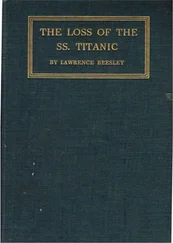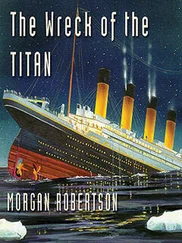Theodore Dreiser - The Titan
Здесь есть возможность читать онлайн «Theodore Dreiser - The Titan» весь текст электронной книги совершенно бесплатно (целиком полную версию без сокращений). В некоторых случаях можно слушать аудио, скачать через торрент в формате fb2 и присутствует краткое содержание. Жанр: Классическая проза, на английском языке. Описание произведения, (предисловие) а так же отзывы посетителей доступны на портале библиотеки ЛибКат.
- Название:The Titan
- Автор:
- Жанр:
- Год:неизвестен
- ISBN:нет данных
- Рейтинг книги:5 / 5. Голосов: 1
-
Избранное:Добавить в избранное
- Отзывы:
-
Ваша оценка:
- 100
- 1
- 2
- 3
- 4
- 5
The Titan: краткое содержание, описание и аннотация
Предлагаем к чтению аннотацию, описание, краткое содержание или предисловие (зависит от того, что написал сам автор книги «The Titan»). Если вы не нашли необходимую информацию о книге — напишите в комментариях, мы постараемся отыскать её.
The Titan — читать онлайн бесплатно полную книгу (весь текст) целиком
Ниже представлен текст книги, разбитый по страницам. Система сохранения места последней прочитанной страницы, позволяет с удобством читать онлайн бесплатно книгу «The Titan», без необходимости каждый раз заново искать на чём Вы остановились. Поставьте закладку, и сможете в любой момент перейти на страницу, на которой закончили чтение.
Интервал:
Закладка:
“Don’t you think we had best go on a little while longer?” she suggested to Berenice. “It just wrings my heart to think that you, with your qualifications, should have to stoop to giving dancing-lessons. We had better do almost anything for a while yet. You can make a suitable marriage, and then everything will be all right for you. It doesn’t matter about me. I can live. But you—” Mrs. Carter’s strained eyes indicated the misery she felt. Berenice was moved by this affection for her, which she knew to be genuine; but what a fool her mother had been, what a weak reed, indeed, she was to lean upon! Cowperwood, when he conferred with Mrs. Carter, insisted that Berenice was quixotic, nervously awry, to wish to modify her state, to eschew society and invalidate her wondrous charm by any sort of professional life. By prearrangement with Mrs. Carter he hurried to Pocono at a time when he knew that Berenice was there alone. Ever since the Beales Chadsey incident she had been evading him.
When he arrived, as he did about one in the afternoon of a crisp January day, there was snow on the ground, and the surrounding landscape was bathed in a crystalline light that gave back to the eye endless facets of luster—jewel beams that cut space with a flash. The automobile had been introduced by now, and he rode in a touring-car of eighty horse-power that gave back from its dark-brown, varnished surface a lacquered light. In a great fur coat and cap of round, black lamb’s-wool he arrived at the door.
“Well, Bevy,” he exclaimed, pretending not to know of Mrs. Carter’s absence, “how are you? How’s your mother? Is she in?”
Berenice fixed him with her cool, steady-gazing eyes, as frank and incisive as they were daring, and smiled him an equivocal welcome. She wore a blue denim painter’s apron, and a palette of many colors glistened under her thumb. She was painting and thinking—thinking being her special occupation these days, and her thoughts had been of Braxmar, Cowperwood, Kilmer Duelma, a half-dozen others, as well as of the stage, dancing, painting. Her life was in a melting-pot, as it were, before her; again it was like a disarranged puzzle, the pieces of which might be fitted together into some interesting picture if she could but endure.
“Do come in,” she said. “It’s cold, isn’t it? Well, there’s a nice fire here for you. No, mother isn’t here. She went down to New York. I should think you might have found her at the apartment. Are you in New York for long?”
She was gay, cheerful, genial, but remote. Cowperwood felt the protective gap that lay between him and her. It had always been there. He felt that, even though she might understand and like him, yet there was something—convention, ambition, or some deficiency on his part—that was keeping her from him, keeping her eternally distant.
He looked about the room, at the picture she was attempting (a snow-scape, of a view down a slope), at the view itself which he contemplated from the window, at some dancing sketches she had recently executed and hung on the wall for the time being—lovely, short tunic motives. He looked at her in her interesting and becoming painter’s apron. “Well, Berenice,” he said, “always the artist first. It is your world. You will never escape it. These things are beautiful.” He waved an ungloved hand in the direction of a choric line. “It wasn’t your mother I came to see, anyhow. It is you. I had such a curious letter from her. She tells me you want to give up society and take to teaching or something of that sort. I came because I wanted to talk to you about that. Don’t you think you are acting rather hastily?”
He spoke now as though there were some reason entirely disassociated from himself that was impelling him to this interest in her.
Berenice, brush in hand, standing by her picture, gave him a look that was cool, curious, defiant, equivocal.
“No, I don’t think so,” she replied, quietly. “You know how things have been, so I may speak quite frankly. I know that mother’s intentions were always of the best.”
Her mouth moved with the faintest touch of sadness. “Her heart, I am afraid, is better than her head. As for your motives, I am satisfied to believe that they have been of the best also. I know that they have been, in fact—it would be ungenerous of me to suggest anything else.” (Cowperwood’s fixed eyes, it seemed to her, had moved somewhere in their deepest depths.) “Yet I don’t feel we can go on as we have been doing. We have no money of our own. Why shouldn’t I do something? What else can I really do?”
She paused, and Cowperwood gazed at her, quite still. In her informal, bunchy painter’s apron, and with her blue eyes looking out at him from beneath her loose red hair, it seemed to him she was the most perfect thing he had ever known. Such a keen, fixed, enthroned mind. She was so capable, so splendid, and, like his own, her eyes were unafraid. Her spiritual equipoise was undisturbed.
“Berenice,” he said, quietly, “let me tell you something. You did me the honor just now to speak of my motives ingiving your mother money as of the best. They were—from my own point of view—the best I have ever known. I will not say what I thought they were in the beginning. I know what they were now. I am going to speak quite frankly with you, if you will let me, as long as we are here together. I don’t know whether you know this or not, but when I first met your mother I only knew by chance that she had a daughter, and it was of no particular interest to me then. I went to her house as the guest of a financial friend of mine who admired her greatly. From the first I myself admired her, because I found her to be a lady to the manner born—she was interesting. One day I happened to see a photograph of you in her home, and before I could mention it she put it away. Perhaps you recall the one. It is in profile—taken when you were about sixteen.”
“Yes, I remember,” replied Berenice, simply—as quietly as though she were hearing a confession.
“Well, that picture interested me intensely. I inquired about you, and learned all I could. After that I saw another picture of you, enlarged, in a Louisville photographer’s window. I bought it. It is in my office now—my private office—in Chicago. You are standing by a mantelpiece.”
“I remember,” replied Berenice, moved, but uncertain.
“Let me tell you a little something about my life, will you? It won’t take long. I was born in Philadelphia. My family had always belonged there. I have been in the banking and street-railway business all my life. My first wife was a Presbyterian girl, religious, conventional. She was older than I by six or seven years. I was happy for a while—five or six years. We had two children—both still living. Then I met my present wife. She was younger than myself—at least ten years, and very good-looking. She was in some respects more intelligent than my first wife—at least less conventional, more generous, I thought. I fell in love with her, and when I eventually left Philadelphia I got a divorce and married her. I was greatly in love with her at the time. I thought she was an ideal mate for me, and I still think she has many qualities which make her attractive. But my own ideals in regard to women have all the time been slowly changing. I have come to see, through various experiments, that she is not the ideal woman for me at all. She does not understand me. I don’t pretend to understand myself, but it has occurred to me that there might be a woman somewhere who would understand me better than I understand myself, who would see the things that I don’t see about myself, and would like me, anyhow. I might as well tell you that I have been a lover of women always. There is just one ideal thing in this world to me, and that is the woman that I would like to have.”
Читать дальшеИнтервал:
Закладка:
Похожие книги на «The Titan»
Представляем Вашему вниманию похожие книги на «The Titan» списком для выбора. Мы отобрали схожую по названию и смыслу литературу в надежде предоставить читателям больше вариантов отыскать новые, интересные, ещё непрочитанные произведения.
Обсуждение, отзывы о книге «The Titan» и просто собственные мнения читателей. Оставьте ваши комментарии, напишите, что Вы думаете о произведении, его смысле или главных героях. Укажите что конкретно понравилось, а что нет, и почему Вы так считаете.










